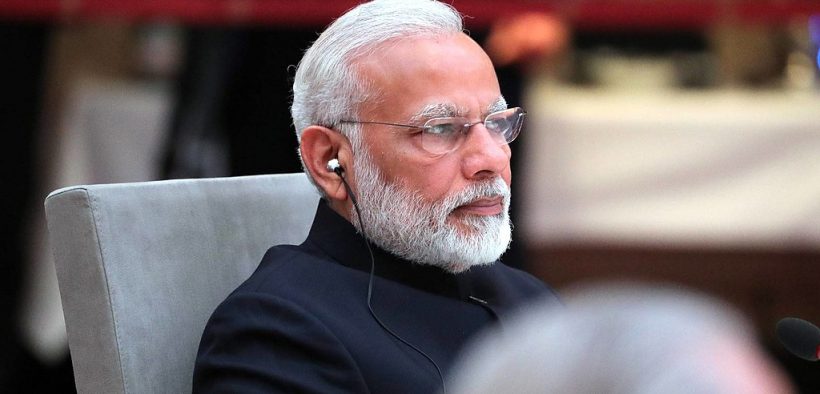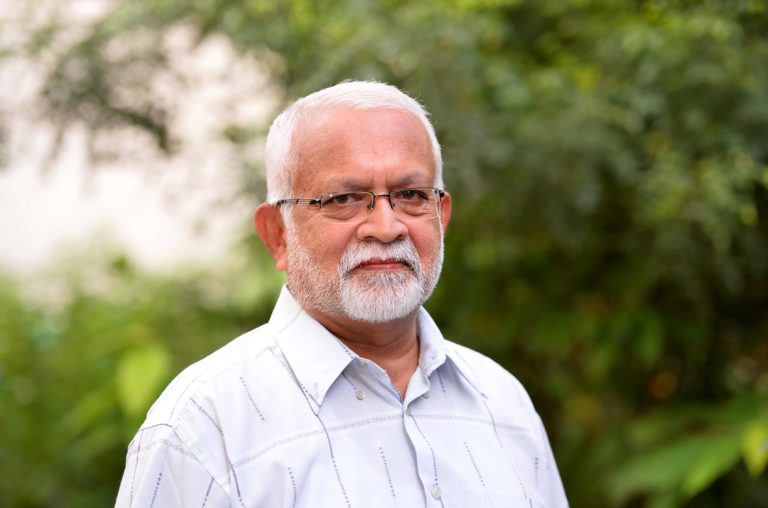Why Kashmir Is Casting a Shadow on India and Russia’s Ties

It serves Indian interests at this point not to identify too closely with the Russian regional and global policies, which are increasingly in a confrontational mode vis-a-vis the U.S.
India’s Prime Minister Narendra Modi’s visit to Vladivostok on September 4-5 has turned out to be anticlimactic. The main outcome of the event could be, arguably, that Modi can now add Vladivostok to the exotic destinations he’s toured so far such as Ulan Bator. There was much hype that Modi’s visit would witness the launch of a brave new world of Indian economic partnership in Siberia, the Russian Far East, and the Arctic regions. But there is no evidence of a breakthrough.
The real big surprise is that the logistics agreement, which has for a long time been expected to be signed during Modi’s visit, stands deferred.
The text of the joint statement seems to have been bitterly fought over at the bureaucratic level of the two foreign policy establishments. The two “time-tested friends” have avoided giving any commitment to supporting each other’s “common interests.” This is a constant refrain in the Russian-Chinese documents, and in the present context of the Kashmir crisis, its value would have been immeasurable.
But in reality, India is prioritizing the U.S. stance on Kashmir in an attempt to moderate it through various methods—by hunkering down as well as by holding out incentives—and a pronounced Russian backing for India at this juncture might prove to be counterproductive, given the New Cold War conditions in world politics.
Conceivably, the advice to Modi from the bureaucrats would have been that too much bonhomie with the Russians—especially with Russian president Vladimir Putin—at this point may only antagonize the Americans and that will be detrimental to Indian interests. This may explain External Affairs Minister S. Jaishankar’s strange performance in Moscow on August 28 in the run-up to Modi’s visit.
If the Russians feel short-changed, they are not going to show it. But then, they are also to be blamed. The fact of the matter is that the Russian-Pakistani “thaw” has been untimely, and, even if nothing much is happening yet in the tango between Moscow and Islamabad, perceptions matter. And the perception, astutely encouraged by the U.S. lobbyists, is that Russia has moved to the middle ground between India and Pakistan.
To be sure, the Vladivostok joint statement shows that the U.S.-Russia-India triangle has become “kinetic.” Washington is having a field day. The U.S. lobbyists in the Indian elite will argue, not without some justification, that given the nature of the crisis in Kashmir, India simply cannot afford to antagonize the Western world.
The U.S. and UK have a rich history of exploiting such complex situations. The harsh remarks by the UK Foreign Secretary Dominic Raab on Monday in the House of Commons last week could not have been a mere coincidence:
“It is important that internationally recognized human rights are fully respected. The dispute between India and Pakistan in relation to Kashmir is for them fundamentally to resolve as recognized in UN Security Council resolutions and the Simla agreement.
“But the issue of human rights is not just a bilateral issue for India or Pakistan or a domestic issue but an international issue. We expect of all our partners that internationally recognized standards of human rights are respected and complied with.
“All or any allegations of human rights violations are deeply concerning. They must be investigated thoroughly and promptly and transparently. The concerns and issues raised are very serious.
“As well as wanting to respect the constitutional arrangements within India and in relation to Kashmir [abrogation of Article 370], they do also have implications internationally particularly as they touch on internationally respected and recognized human rights.”
It stands to reason that Washington and London are moving in tandem. The Kashmir issue lends itself as the perfect handle to make India behave and get it to fall in line with the Anglo-American global strategies. The two major templates impacting here will be India’s close ties with Russia and, secondly, India’s ambivalence vis-a-vis the U.S.’s Indo-Pacific strategy.
This backdrop will explain why contrary to the general expectation, Russia and India have deferred the signing of the logistics agreement. The point is, it serves Indian interests at this point not to identify too closely with the Russian regional and global policies, which are increasingly in a confrontational mode vis-a-vis the U.S.
To what extent the Americans would have prevailed upon key policymakers in Delhi to keep the logistics agreement with the Russians pending, we do not know, but there is certainly more to what happened—or didn’t happen—in Vladivostok than meets the eye.
Equally, Russians appear to have said a firm “Nyet” to any insertion of the U.S.-Indian coinage “Indo-Pacific” into the joint statement. The wording on Asia-Pacific security suggests that the Russian side took care not to trespass on Chinese sensitivities.
Again, notably, India decided to hold back on cooperation with Russia in the field of energy, although there were high expectations that some major announcements could be expected in Vladivostok. Perhaps, India prioritizes the energy partnership with the U.S. at this point, which also happens to enjoy President Trump’s personal support and intervention. India is holding a major energy conference in Houston, Texas, later this month to outline big plans for Indian investments in the U.S. energy industry.
On the whole, the outcome of the Vladivostok visit marks a subtle reversal of trend discernible in the revival of the India-Russia relations pioneered by Modi during the past couple of years. Delhi’s calculus could be that a reboot of the U.S.-Indian strategic partnership has become a dire necessity at the present juncture when Kashmir crisis has touched criticality. By piling pressure on India—and Modi personally—by threatening to mediate in the Kashmir issue, Washington has “softened up” Delhi. So long as Modi carries the Albatross of Kashmir, he becomes vulnerable to Anglo-American blackmail.
Russia will sense that despite all the bravado of nationalism, India’s ruling elite is bending over backward to appease the U.S. to navigate its Kashmir policies through a difficult period. Ironically, this is also a tragic replay of history.
In the late 1940s, under Anglo-American pressure, Jawaharlal Nehru took the Kashmir issue to the UN Security Council. At that time too, Delhi made a conscious decision not to offend the West by seeking help from the USSR. (Cold War had erupted by then.) It was left, finally, to the then-ambassador to the Soviet Union, Dr. Sarvepalli Radhakrishnan (later India’s president) to take the personal initiative, somewhat impromptu (and without Nehru’s prior approval) to make a demarche seeking Soviet help, during a meeting in Moscow with Andrey Vyshinsky, foreign minister (1949-1953) under Joseph Stalin.
The Soviets began using their veto power to bail out India from the Anglo-American entrapment on Kashmir issue from that point onward. By then, of course, the great damage was already done—UN Security Council had already adopted the controversial resolutions (sponsored by the U.S. and UK) on holding plebiscite in J&K, which haunt India to this day. Alas, Nehru too was influenced largely by the pro-Western coterie among the Indian foreign-policy elite that surrounded him at that time.
This article was produced in partnership by Indian Punchline and Globetrotter, a project of the Independent Media Institute.















